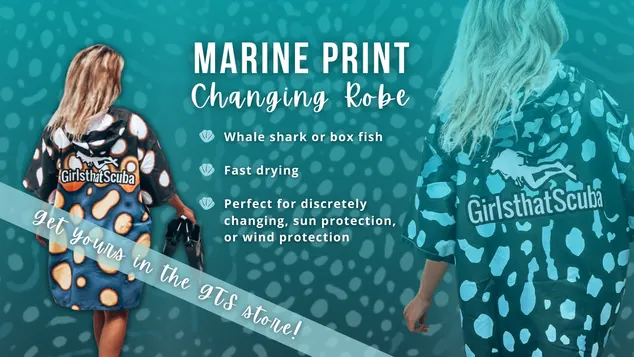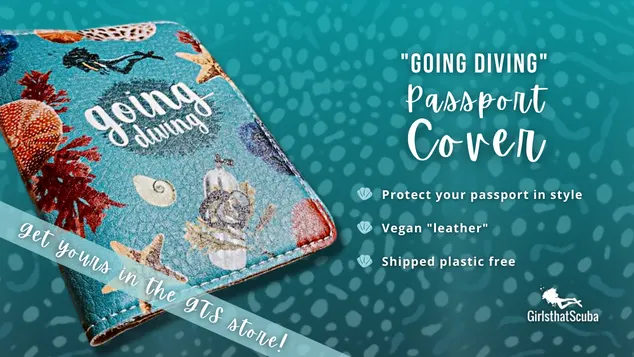[ad_1]
Heading out on a liveaboard journey is likely one of the finest methods to dive. It’s a favorite for our Ladies that Scuba Journeys – what may presumably be higher than a schedule of eat, sleep, dive, repeat? Nevertheless, some remoted latest occasions have introduced scuba liveaboard security into query.
We caught up with two Ladies that Scuba members to share their ideas on how one can keep protected on a liveaboard. Anke Westerlaken is an skilled Cruise Director (that’s a liveaboard supervisor, for any newer divers!) who is aware of a factor or two about security on dive vessels. Sally Nolan was on board a liveaboard in April 2023 which capsized, and has kindly mirrored on her expertise to supply up what to look out for on dive boats.
Whether or not you’re reserving your subsequent liveaboard, otherwise you’re all packed able to set sail, take a look at our high suggestions for scuba liveaboard security. Following the following pointers gained’t assure security on board, nevertheless it may assist to cut back dangers. We hope that sharing these will make divers really feel extra empowered asking about security on board, which might solely make the dive trade safer for everybody!
1. Ask questions earlier than you guide
Taking management of your security on a liveaboard begins earlier than you even guide your journey. Sally suggests discussing security factors together with your reserving agent. Listed below are her suggestions:
“For those who undergo an agent, what due diligence do they do to make sure that the businesses they checklist and work with are skilled, respected and protected? For those who guide immediately with the boat firm then ask them the identical questions you’ll ask an agent.
What assurances can they provide you in regards to the following:
- Is the boat you’ll be on licensed by native boating authorities as protected for its objective?
- Who’s the boat firm? Look them up on-line (strive a search within the Ladies that Scuba group) and skim opinions.
- Have there been any earlier incidents with any of their boats or dive safaris?
If you find yourself on board, you’ve paid to your flights and vacation. You might be excited and dedicated, to a sure diploma, to go forward even if you’re not 100% pleased with one thing.
Don’t wait till you’re onboard to ask questions.”
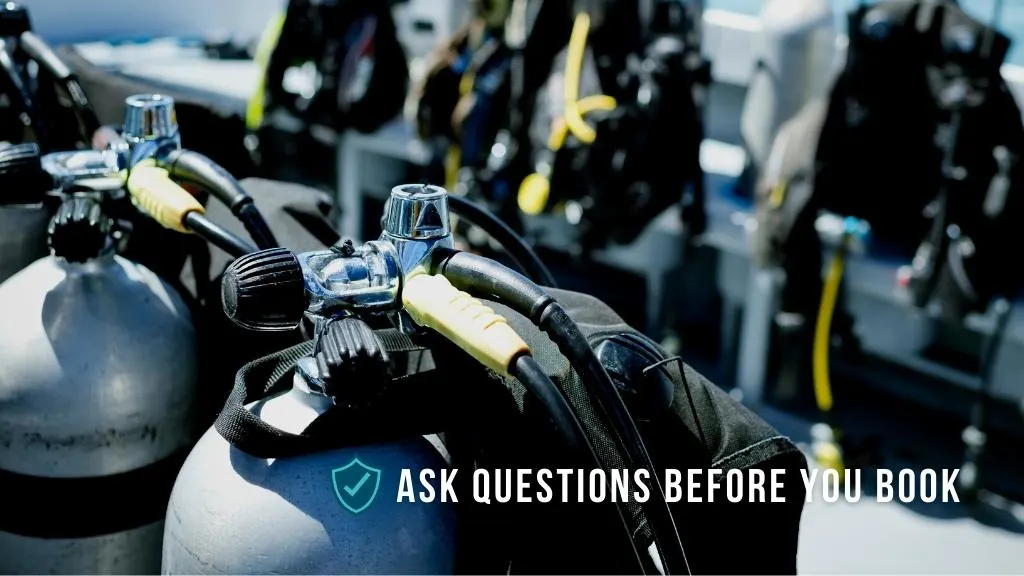
Anke agrees, telling us “Asking a reserving agent or boat operator earlier than you make a reserving about any of the described means are very legitimate and strongly suggested. Don’t take security without any consideration however concentrate on the dangers you take and know what you should do within the unlikely occasion of an emergency.”
2. Don’t skip the insurance coverage!
We discuss repeatedly in regards to the significance of getting scuba diving insurance coverage, in addition to journey insurance coverage to cowl your journey and any non-diving medical points. Sally recommends wanting into your journey insurance coverage intimately.
“Select your journey insurance coverage very fastidiously. Journey insurance coverage might should be particular for a liveaboard relying on the insurance coverage firm. Attempt to buy a coverage that covers authorized help in case of an accident the place the opposite social gathering is accountable/negligent.
Some corporations will cowl for diving right down to 30m if you’re certified to take action. Lots of the diving insurance coverage corporations is not going to cowl you if there is a matter with the boat. Their insurance coverage is commonly particularly for diving accidents.”
We suggest DiveAssure’s Liveaboard Rider, which covers many distinctive conditions that wouldn’t be coated by common journey insurance coverage.
It’s additionally smart to verify the boat’s stage of insurance coverage whenever you’re signing your paperwork. Sally likes to ask, “What does the boat firm insurance coverage coverage cowl? Particularly with regard to capsize, hearth, sinking”. It’s necessary to recollect to learn the small print, too.
3. Ask about crew coaching
“Crew and guides must be sufficiently skilled to deal with any emergency because the unlikely occasion happens,” says Anke. “This coaching must be up to date normally yearly and may cowl resuscitation, first assist, hearth preventing and man overboard procedures.”
Listed below are a few of Sally’s advised inquiries to ask:
- “What security and emergency coaching do the crew and dive guides have?”
- “What {qualifications} do every of the dive guides have?”
- “Is there a correct first assist package, together with oxygen and an AED, on board?”
- “How lots of the crew and dive guides are certified to manage first assist?”
4. Take note of the security briefing
Few of us hear as carefully as we should always throughout a security briefing on a airplane. However what about on a liveaboard? It’s in your curiosity to be all ears!
Anke tells us extra. “Both at first of crusing or simply earlier than, the guides onboard ought to give a security briefing (typically known as a muster drill). The primary aim is that you just as a visitor know the place to discover a life jacket and how one can put on it.”
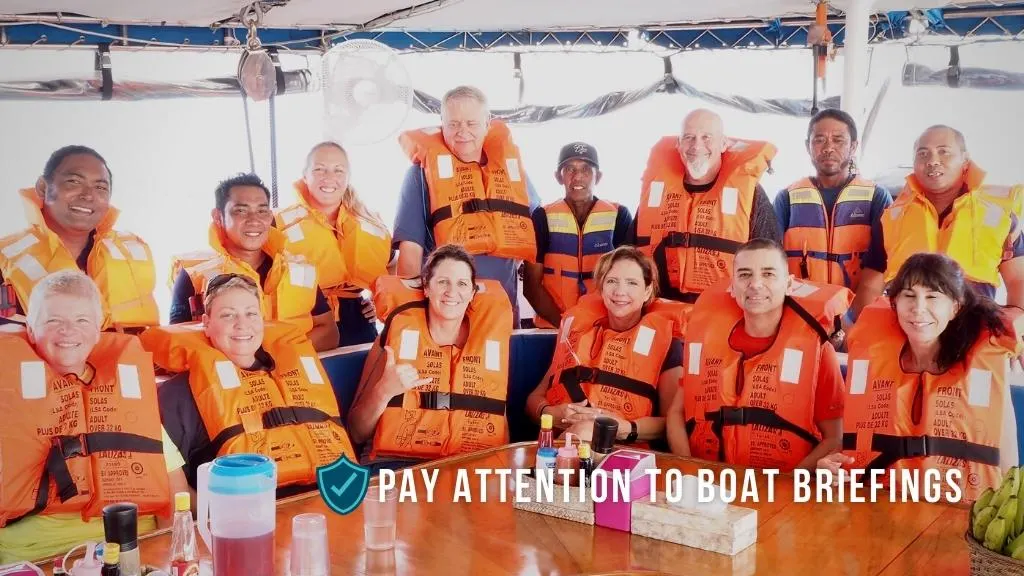
“After the briefing you must also know the place to assemble, be accustomed to the exits and emergency exits, plus have an understanding of how one can soar overboard. That is within the unlikely occasion of an emergency the place it’s determined to desert ship. Moreover, the man-overboard process must be mentioned so that you just as a visitor can contribute in assistance from serving to others.”
Sally recommends, “Observe this up by asking to see the emergency hatches and how one can open them.”
5. Familiarise your self with the boat
In addition to listening carefully to the security info offered, it’s smart to take a while to get to know the security options by your self. Listed below are Sally’s recommendations for maintaining a tally of scuba liveaboard security.
“Get to know the structure and take note of small particulars.
- Which means do doorways open – inwards or outwards?
- Is the furnishings fastened down correctly?
- Does the staircase have a handrail?
- Is there a method to interrupt glass doorways or home windows in case of an emergency?
- Is there any emergency lighting?
- Are you pleased with the dive deck structure and tools storage?
Run by way of some ‘what if’ situations. How would you escape out of your cabin or the lounge deck if the boat capsized? It might sound pessimistic, nevertheless it may save your life.”
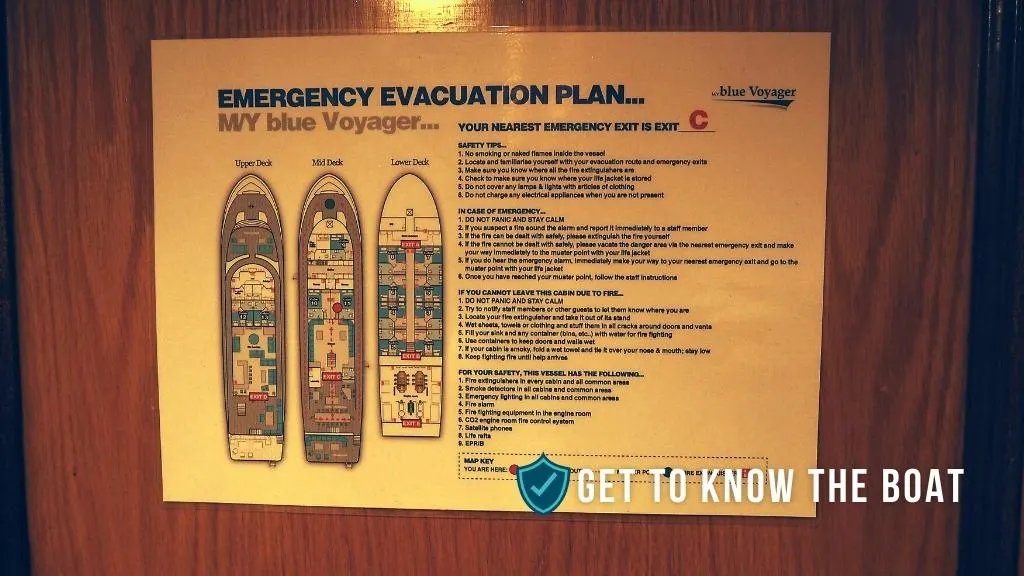
Anke’s recommendation echoes this. She tells us, “Every area onboard, together with your cabin, ought to have a flooring plan hanging that explains the route (and various route) to the meeting level. Most company take that as a given, nevertheless it’s strongly advisable that you just get yourself up to speed with the vessel. You need to know how one can get out of every area in an emergency.”
6. Take a look at the security tools
There’s extra than simply dive tools on a liveaboard. Right here’s what Anke suggests searching for when it comes to security tools.
“There must be a enough provide of emergency oxygen, together with the wanted regulators, and a effectively equipped medical field that’s accessible to all.”
“You additionally want to consider the next:
- Life rings with a protracted line on the surface of the vessel
- Life rafts sealed and throughout the testing interval
- Fireplace sensors and alarms in every area inside – each battery powered and generator fed
- Emergency exit indicators
- Fireplace extinguishers in every area
- “Oceanears” or comparable alarm underwater to recall you as you’re diving
- A water hose on the deck
- Fireplace alarms you can set off by hand
- A CCTV system (for employees monitoring for hearth)
- An alarm that units off as it’s submerged and sends out a misery sign by satellite tv for pc (an EPIRB, much like a PLB)
- A satellite tv for pc cellphone”
This isn’t an intensive checklist, and you might discover some mixture of those security options on board a liveaboard.
7. Communicate up in case you’re not sure
Similar to our recommendation on crimson flags in dive retailers, it’s necessary to talk up in case you really feel like something is misplaced.
As Sally suggests, “Keep alert to any potential points or issues, and notify the captain or crew about something regarding you. Don’t be afraid to talk up and ask questions, and just remember to are happy with the solutions”.
8. Take cost of your private security
While most of this recommendation is in regards to the boat, there are a couple of extra steps you’ll be able to take to be sure to hold your self protected. Think about taking a rescue course your self, together with first assist, oxygen provision, and resuscitation. Even in case you by no means use the talents, this can empower you with extra data which might solely be an excellent factor!
We’d additionally counsel wanting into carrying a PLB or different locator machine. These may very well be simply as helpful in a boat-related emergency as they may on a dive.
Moreover, you possibly can take a small private smoke detector into your cabin for peace of thoughts. That means, you realize the batteries are charged and that the alarm is purposeful.
Lastly, take into account packing a seize bag. It is a bag which you’d need to have the ability to entry rapidly and take off the boat with you in case of emergency. Think about packing the next right into a dry bag:
Preserve it near your mattress while sleeping, or hold it on the again of your cabin door. On some boats, the Captain or Cruise Director will accumulate the passports and retailer them in their very own seize bag because of this.
Closing Ideas
Though it might seem to be quite a bit to consider, taking a while to verify issues over could make your journey extra fulfilling. Sally says, “If we’re joyful that we now have finished all that we are able to, earlier than we set sail and through the journey, to make sure our security on board then we’re much more more likely to truly be safer and benefit from the dive safari.”
The probabilities of something going unsuitable are nonetheless slim, as Anke reminds us. “Is there purpose to be scared to journey by boat? No there may be not! The possibility of you being hit by lightning is way larger, and the way many individuals have you learnt which have skilled simply that? Journey safely and love diving.”
Share this together with your favorite liveaboard dive buddy, and don’t neglect to tag @girlsthatscuba!

Anke Westerlaken
Anke is an skilled Cruise Director and is at present a dive information for Blue O Two. She has a decade of expertise working within the Purple Sea (Egypt), Maldives, Indonesia and Bahamas. She is a PADI, SSI and DAN teacher and CMAS and NOB teacher coach. Columnist of the Dutch diver journal. Organiser of liveaboard journeys at request and underwater fanatic. For extra info take a look at www.Lovediving2.com or contact Anke by electronic mail.
Sally Nolan
Sally is British and lives in Altea, Spain the place she works as a Pilates teacher. She’s 56 and a mum of two younger adults. Sally loves journey, mountaineering, health and water sports activities and is AOW and deep dive licensed.

[ad_2]

